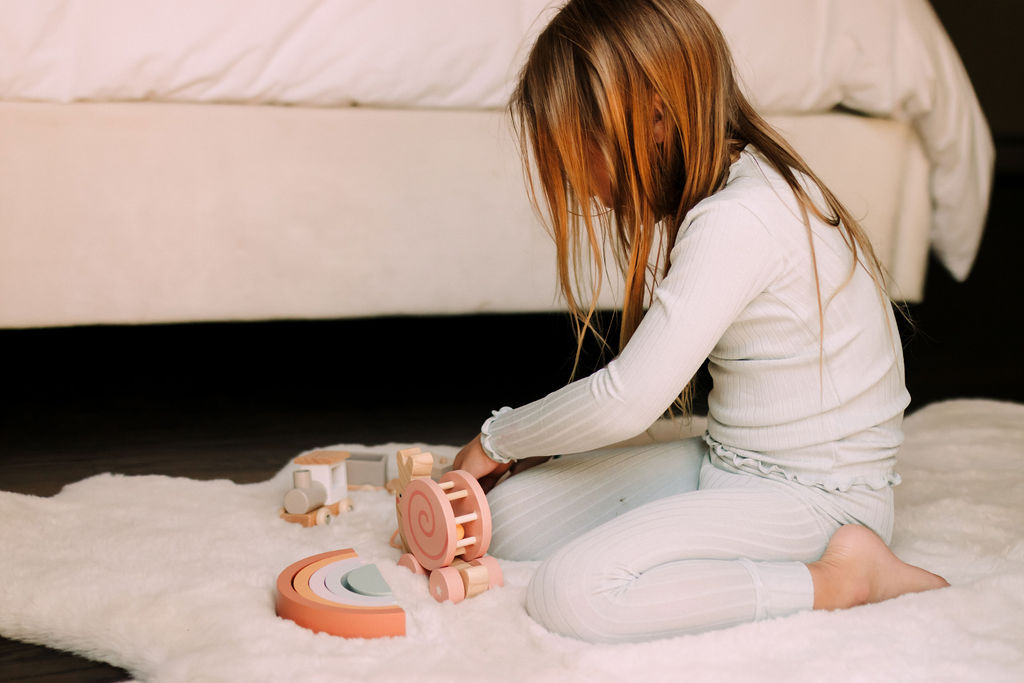The mystical power of Seder night
On Seder night, the gates of Heaven open wide as the Seder is held in Jewish homes around the world.
On this night, we are imbued with the magical energy to leave our personal Egypt—those places of constriction, of confinement, of tension and suffocation. The places where we feel like there’s no way out of and no way to move forward.
Imagine how many families, in countless homes, cities, countries around the world, sit and revel together in this deeply spiritual experience.
Every continent inhabited by man is lit up with Seder magic on this powerful night. It’s as if the entire world aligns for this powerful event, and we’re all part of it. A moment in time when we stop and say, “We’re leaving Egypt. We’re rising. We’re moving on.”
“Ok, Riki. Sounds really nice. And what about…
- When the baby cries and I have to leave the table for an hour to feed and put her to bed?
- When my toddler spills grape juice all over the brand new pajamas my mother-in-law just bought?
- When there’s a panicky moment as we find a hidden yogurt pouch leaking all over my father-in-law’s afikomen?
Are we still feeling that spiritual high then?
Friend, I’m right there with you. I’ve got four grape-juice spillers who share a last name with me. Your struggle is my struggle. It’s every young mom’s struggle, every holiday.
Finding meaning in the mundane
Being a mom of littles doesn’t always lend itself toward a feeling of elegance—especially when you’re juggling diaper changes, feedings, and last-minute meltdowns.
And this is our holy work in this season of life.
Because while we spend a lot of time behind the scenes, our true power lies in raising the children of the King.
Without exaggeration, without poetry or hyperbole, we are raising the next generation of physical and spiritual Jewish soldiers.
Every diaper change, every feeding, every bedtime is a tiny, sacred step in raising the future of the Jewish people.
Just think about it: when you were a kid, how many people did your parents know personally serving in the IDF? Nowadays, we all know someone. After two thousand years of exile, there’s a real Jewish army – and we know the soldiers in it. That’s next-level legacy, my friend.
And that’s just one example. All of the spiritual generals we have today: leaders in Hatzala, Tomchei Shabbos, Misaskim, Chaveirim, Aid L’shalom, Areivim… there are hundreds of organizations devoted to helping Jews in need. And every founder, every donor, every volunteer of these groups was one a tiny baby, who missed the Seder with their mommy rocking them to sleep.
Who knows who your little baby will grow up to become? Who knows how they will impact the Jewish nation, and the world? You’re building that foundation right now, with every hug, kiss, bottle and bath.
So yes, the Seder carries on without us at times. And we keep the little royals going. Every mess, every bedtime, every little yogurt pouch.
It’s holy, G-dly work.
It doesn’t get any more important than that.
We are the next link in the chain. It is here, it is now, right in front of you, in the form of your beautiful children.
What we do today shapes who our children will become tomorrow.
Chametz: our parenting ego
The Baal Shem Tov explains that chametz represents ego—the part of us that thinks we’re in control. That things should go our way. That our children should listen to us. And do what we want. What we expect.
Pesach is about bitul chametz—letting go. Humbling ourselves. Becoming like matzah: simple, open, present.
You had a plan. A good plan. Sleep schedules, meal ideas, quiet afternoons where you hang out with your sisters and your baby plays peacefully on the floor.
Reality? Baby didn’t get the memo. Your toddler wants the blue cup, no, the red one, no, actually, the one you left at home. Meltdown.
And it’s so easy to feel frustrated, triggered, overwhelmed—and like they’re the problem.
If only the baby would sleep. If only the toddler would play nicely. If only things would go the way I planned.
This is chametz.
The Kotzker Rebbe reminds us, “Wherever you let G-d in, that’s where He is.” And sometimes, the way we let Him in is by releasing our grip. By meeting our kids where they are instead of forcing them into our vision. By becoming like matzah—lean, flexible, free from the need to be right.
It doesn’t mean chaos. It doesn’t mean zero boundaries. But it does mean checking where our frustration comes from. Is it about their needs, or is it about our expectations? Is this about guiding them—or controlling them?
Even if you’re locking up or selling your house this year, you’ll be cleaning out your purse, your car—and heaven knows you’ll be digging those crumbs out of the car seat.
While you’re at it, notice what else you can clear out. The pressure to have the perfect child, the perfect sleeper, the cutest of all the grandchildren. The frustration when things don’t go to plan. The ego that says, they should just act how we want them to.
Physical preparation for the holiday is just practice for the real stuff—the internal clearing out.
The real Pesach prep isn’t just in the kitchen—it’s in the heart.
Ma Nishtana: the cry of redemption
According to Chassidus, the reason we read the Ma Nishtana is to awaken G-d’s mercy upon us—just like a parent to their child.
Think about that.
When your baby is crying at bedtime, and you scoop them up and whisper, “shhh, Mommy’s here,” you feel a deep, instinctive love that can’t be defined by words alone. That’s how G-d feels about you.
And the Ma Nishtana is our cry.
We sit at the Seder, lifting our voices and turn our hearts heavenward, saying, “G-d, look at us! We’re Your children. We need You.”
We’re the little ones on the big, confusing stage of history. Just like your baby’s cry pulls at your heart, our collective Ma Nishtana pulls at G-d’s.
When you’re rocking your baby to sleep, missing out on parts of the Seder, remember: You are the Ma Nishtana. You are the cry that awakens mercy. You don’t need to be at the Seder table to pour out your heart in prayer. A mother caring for her baby is a living prayer.
This night is different. Because this year, you’re creating your link in our 3,300 year old mesorah. This is your chance to pour your love into your baby this year on Seder night. This is your time to add your motherly spin, your unique soul stamp, on a golden chain of Jewish mothers and babies that stretches back throughout the ages.
Leil Shimurim: night of the newborn
According to Kabalah, Leil Shimurim is not just about the Exodus—it represents Hashem’s constant, watchful care from the moment a child enters the world. The Zohar says that on Leil Shimurim, we are like a newborn baby: fragile and completely dependent, yet miraculously protected by their strong and loving parents. Just like a parent watches over their tiny baby with a deep, powerful and intuitive love, even when the baby is unaware of it – that’s how Hashem watches over us.
Reb Shneur Zalman of Liadi explains that just as a baby doesn’t understand why their parent holds them, feeds them, and sings to them, yet they instinctively feel safe, Bnei Yisrael experienced Hashem’s care before they could fully grasp it. This is a powerful insight into babyhood—so much of what we do as parents in those early months is about creating a sense of security, even before our baby understands why.
Leil Shimurim is a night where there is no fear—it is completely protected, a moment of pure safety and divine watching. Just how a baby feels in the arms of a loving parent. A baby doesn’t need to know all the details of how they are being cared for; they simply exist in the comfort of knowing they are held.
Leil Shimurim is the ultimate baby metaphor: a night where we are cradled in divine protection, held close, and loved unconditionally. You are G-d’s sweet, precious and most deeply loved baby.
Seder Night FAQ’s
Hiii! Love this – so helpful! What are your thoughts about keeping baby up for Seder? Hubby really wants to!
Gee. I have mixed thoughts on this one. My artistic, creative, soul energy says “Of COURSE baby should stay up for the Seder! This is Mesorah! And of course your husband wants to keep baby up for this – he thinks about Yetziyas Mitzrayim twice a day, every day! And this is the climax of it all! How many Sedarim do we get with our children?! This is what life is all about! Soak up every second!
And then my practical side kicks in. Overtired babies melt down. Overwhelmed moms stress out. There may be other children that factor into the equation over here. A meal that has to be served. Cleaning help that may or may not show up the next day. And then we do it all over again the next night.
This is a highly individual question, and each family will find their own answer. A lot of it comes down to your baby’s temperament, how they can handle the late bedtime, and how you can juggle it all.
I personally don’t love the idea of putting my little kids to bed at their regular bedtime on Seder night, as if it were any other night. I like to keep my babies up as long as they can handle it. I bring an extra pack and play to keep at our Seder location for when/if they crash.
The power of mesorah is what’s carried us through the ages to this critical time in history, where we can literally feel Mashiach energy in the air. And even if babies are too young to consciously remember the Seder, it will live in their bodies for a lifetime.
On the other practical, compassionate and realistic hand: I am ALL about a mother with a calm and regulated nervous system. You’ll know when it’s time for bed. And for some babies, that’s before the Seder starts. You’ll know what your family needs.
We are traveling to my parents over pesach and my live-in help is not coming with us. Please give me tips how to handle the mornings after the Sedarim. Specifically, how can I make sure my 15 months old twin girls sleep well till at least 7:30 AM.
Permission to be annoyed: a lot of parenting is about adjusting our expectations towards biological and developmental norms.
The 7-7 sleep myth causes so much frustration when parents feel like their baby isn’t “getting it” or “it’s not working,” when really, their baby is just being… a baby.
So while having 15 month old twin girls is a huge handful (been there done that – without live in help!) nothing can make them sleep in.
Maybe you’ll get lucky, especially if they’re up till 1am at the Seder with you. But you might not – and the more prepared you are to deal with that, the less overwhelmed and frustrated you’ll feel.
It really comes down to two options: finish the Seder early on your own and head to bed at a reasonable hour, or ask a family member to watch them in the afternoon while you crash for a nap.
Question: we’ll be walking home after the Seder, which means baby will become super tired at one point and we’ll only be able to put her to sleep in her carriage. Any ideas? The thought of dealing with an overtired baby is scaring me.
A couple of thoughts here:
- If you can bring/borrow/beg/steal an extra pack n play for your Seder location and keep it in a side room, you can try a temporary bedtime (aka a long nap) during the Seder. Bring a small sound machine and set it up in advance if your baby needs that.
- If that’s not an option and your baby is the type who can sleep well in their stroller (there is a percentage of babies who do this shockingly well, especially at 11pm) then I would just roll with that.
- And lastly, if all else fails, you’ll be in good company. No one’s taken a census yet so it’s hard to know how many hundreds of thousands of frum babies there are in the world these days – כן ירבו ויפרצו כרוב ישראל – but it’s safe to say that there will be many, many, many overtired babies and exhausted mamas this Pesach. And we’ll all be ok. The more accepting you are of the fact that your baby will be kvetching and your bones will be aching and your muscles will be screaming and your toddler will be bouncing off the walls… the less annoyed you’ll feel when it does come to meet you. Remember, it will pass. Life moves through us.
Chag Sameach, friend. You’ve got this.
Psst… Have you seen my blog on Pesach with Little Kids? Check it out here for tips on packing, schedules and staying with family.







Comments +